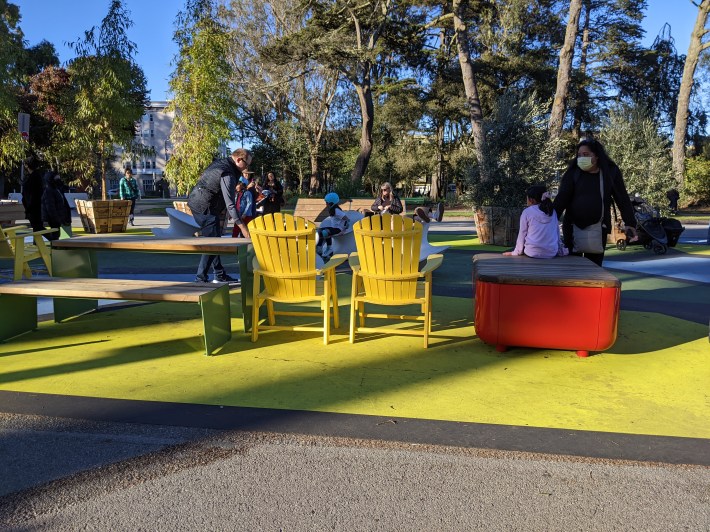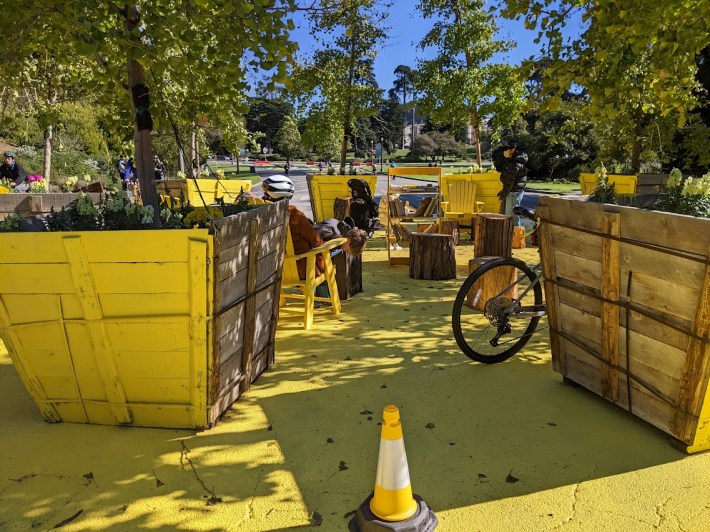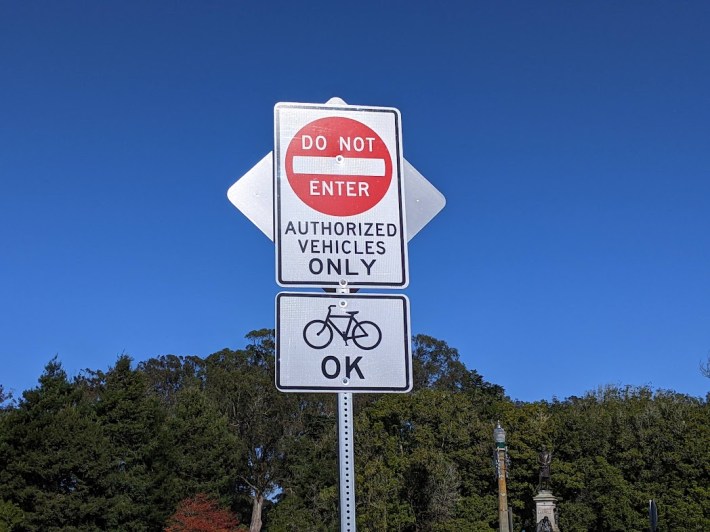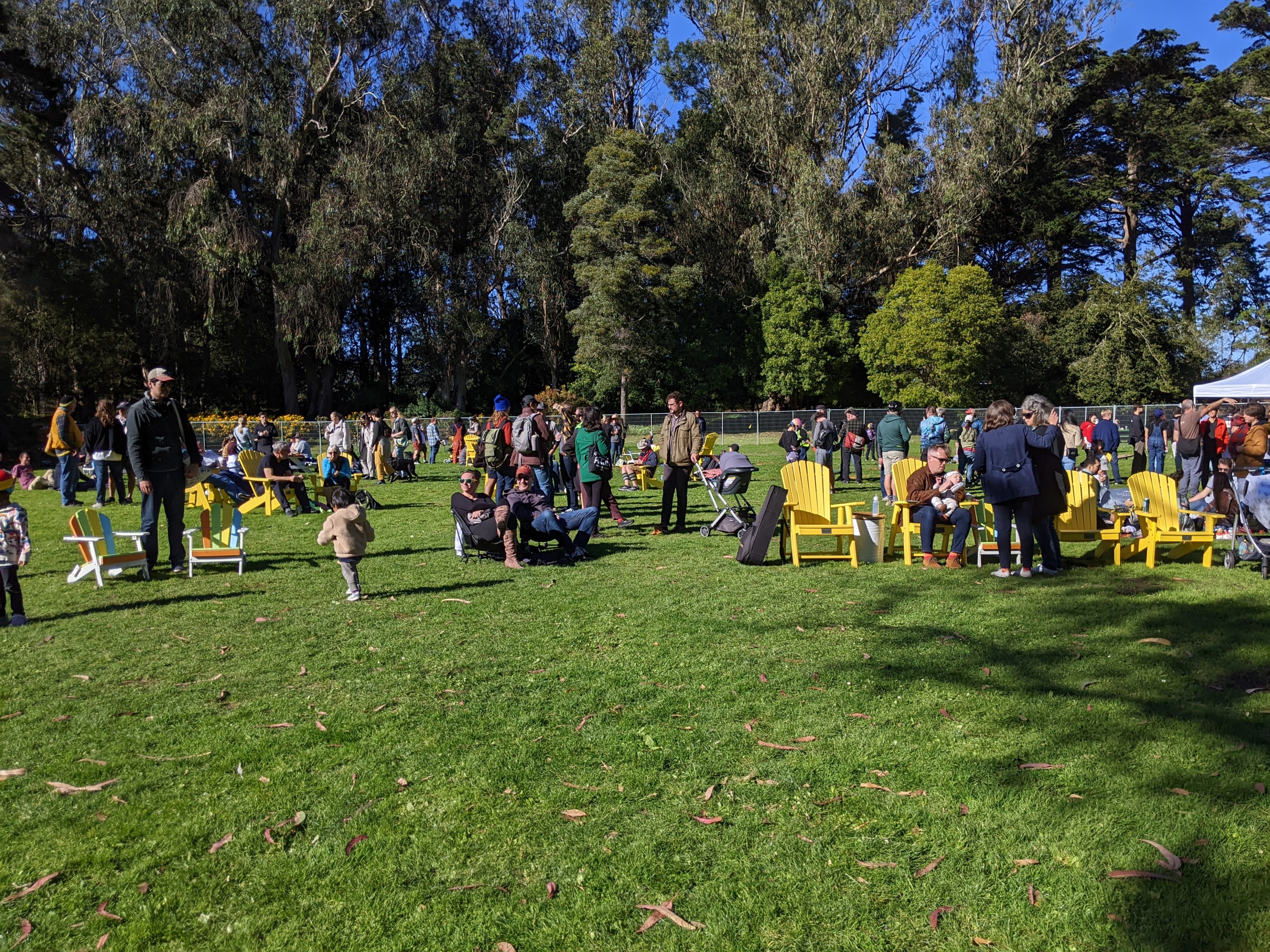Note: GJEL Accident Attorneys regularly sponsors coverage on Streetsblog San Francisco and Streetsblog California. Unless noted in the story, GJEL Accident Attorneys is not consulted for the content or editorial direction of the sponsored content.
A hundred or so advocates and city officials and their families enjoyed beer, barbecue, and sunshine Saturday during an hours-long celebration of the J.F.K. Promenade in Golden Gate Park. "It took 50 years, but it's finally over," said State Senator Scott Wiener, one of several officials who addressed the happy crowd about the fight to get cut-through traffic, and the injuries it brings, off J.F.K. "People in San Francisco get it," he added, meaning the election results clearly show the majority want safe, car-free and car-light streets to become the norm in the city.
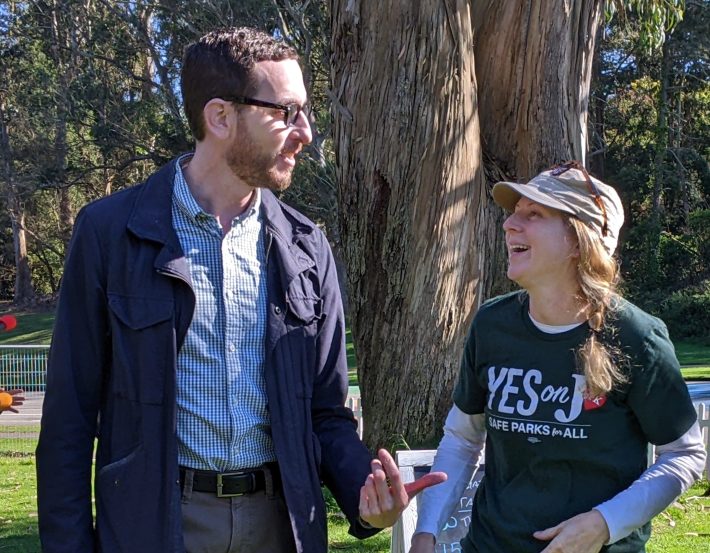
The proof for that is in the proverbial pudding.
As of the latest count, Proposition J, which enshrines the "Recreational Use of JFK Drive in Golden Gate Park," won by 62 percent. And Proposition I, Dede Wilsey's measure that would have returned cars to all of JFK and the Great Highway Park, all the time, lost by 64 percent. What's more, with few exceptions, the push for more car-free spaces in the city won by varying margins almost everywhere in the city--clear proof that San Francisco wants its streets everywhere transformed and made safe.
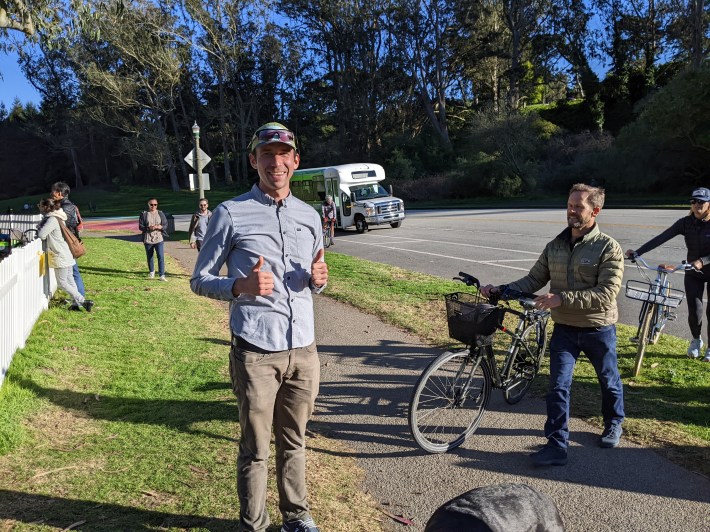
"We have a clear mandate from voters," said Luke Bornheimer, an organizer and advocate for the car-free JFK Promenade. "Slow Streets, traffic diverters, fully protected bike lanes; we'll be working with the city to make that happen."
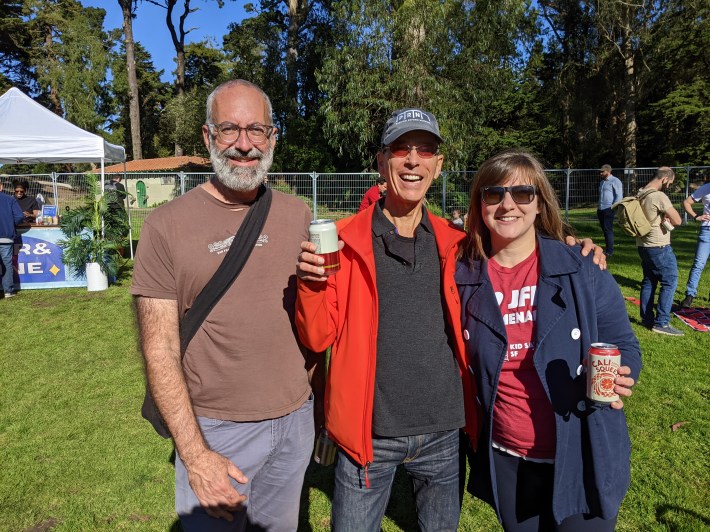
"I think it's great news for Valencia, in the Mission--everybody voted overwhelmingly for this," said Livable City's Tom Radulovich. "It's a huge green light. It's a mandate," he said of other projects to make streets safer for all users and to end total car dominance in the city.
Looking at the J.F.K. Promenade, with hundreds of cyclists, roller skaters, kids, and people from all walks of life enjoying a Saturday afternoon, it seems imponderable that just a week ago it was unclear if this would be preserved. "How did we ever not have this?" said Walk San Francisco's Marta Lindsey.
Although the speeches were given by electeds, officials, and professional advocates, most of the people at the celebration were just regular San Francisco residents who are tired of living in a city so utterly dominated by speeding motorists. Mark Hogan, who spent untold hours canvassing for J, was enjoying lunch with his wife and daughter. "Most people we talked with didn't even know what the propositions were," he said. But once explained what was at stake if Dede Wilsey and the de Young museum had their way, "most people responded positively. I don't know anyone who said 'no' to car-free J.F.K."
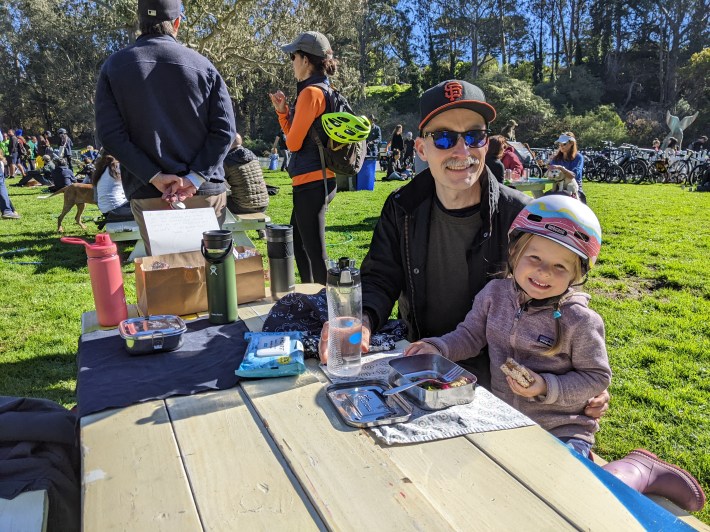
"Car-free spaces are very popular," added Hogan. "The people who are against are just very loud."
It was just last April that the San Francisco Board of Supervisors decided by a seven-to-four vote to preserve the eastern half of J.F.K. drive as a promenade. Opponents bankrolled Prop. I, a ballot initiative to try and overturn the Supervisor's decision. Prop. J was a counter-acting ballot initiative to I. The voting results now make it impossible for the Supervisors to reverse their decision.
"It's been months and months of fighting said Cedar Makijani, another volunteer who came to celebrate. "I think San Francisco always wanted this. I also talked to people who moved to San Francisco after the pandemic, and it blows their mind to hear there used to be cars here."
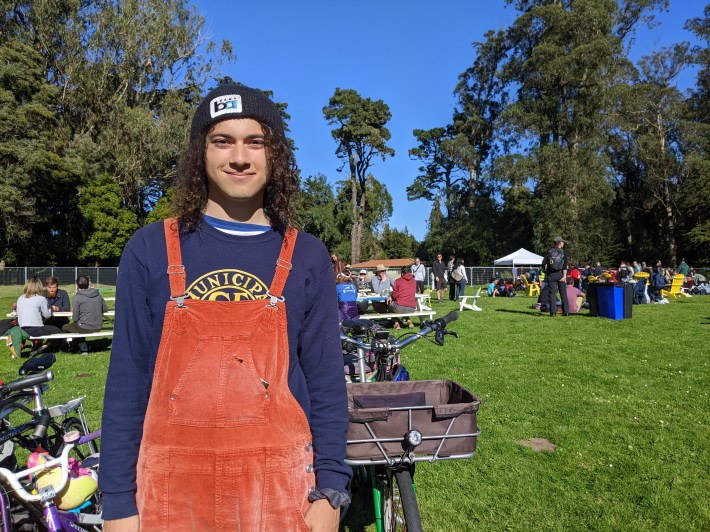
"Thanks for fighting for the city you want to see," said Phil Ginsburg, general manager of the San Francisco Recreation and Park Department. "It wouldn't have happened without you believing you could win."
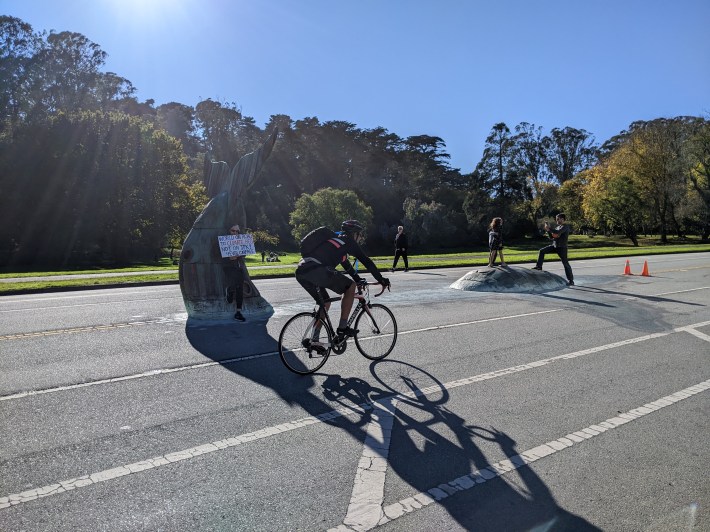
"San Francisco is the best city on the planet," said Wiener. "We can make it even better. Thanks everyone."
A couple more pictures below:
